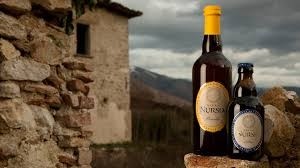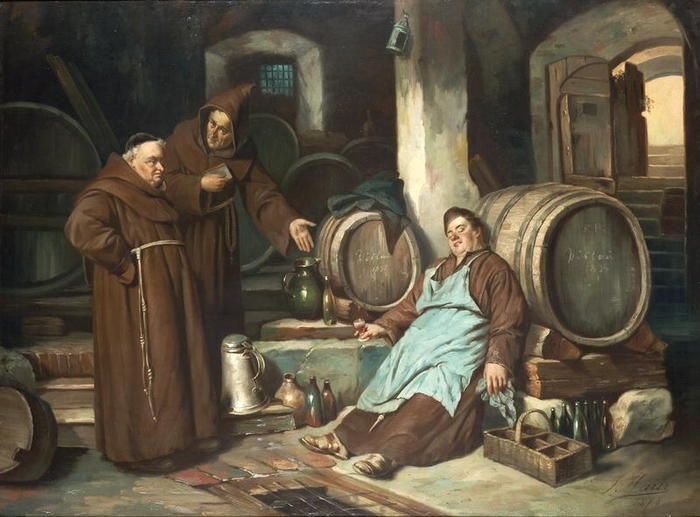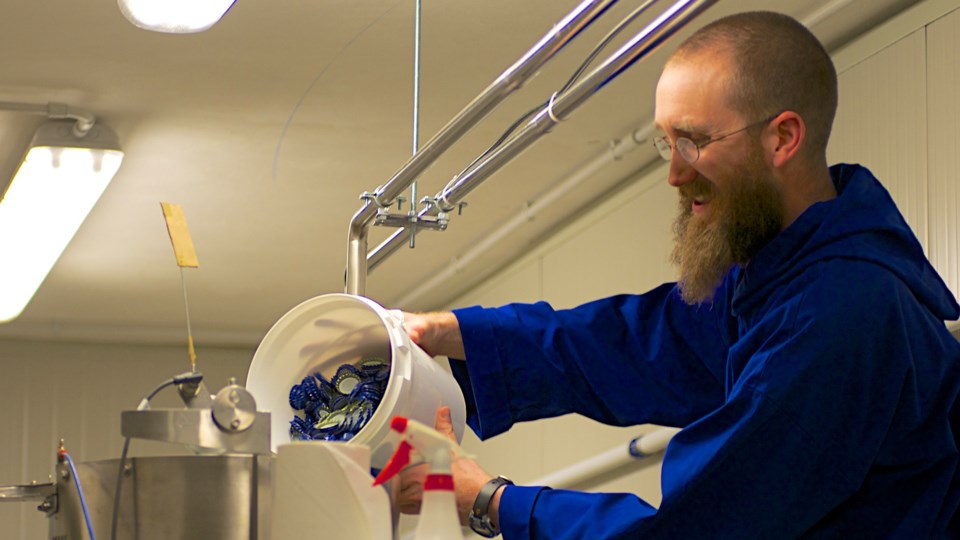Welcome to Leap of Faith, a new weekly blog hosted by veteran religion reporter Alicia Ambrosio, exploring faith, spirituality and Vancouver's sacred spaces.
In October of 2016 a 6.6-magnitude earthquake shook the town of Norcia, Italy. Several historic buildings, including the medieval basilica and monastery of St. Benedict, were destroyed. The Benedictine monks of Norcia were lucky, though – their brewing equipment and several vats of pre-quake beer were safe in the basement of the monastery. That basement brewery would help fund the rebuilding of the monastery and other historic buildings in the town.
However, had the monks belonged to a different religion, this type of fundraising would have been strictly off limits.
For most Christians it is perfectly acceptable to consume and handle wine, beer and spirits. According to the Bible, the first public miracle Jesus performed was turning water into wine at a wedding in Cana. At the last supper Jesus blessed and shared a glass of wine with his closest followers, and, because of that, wine features prominently in the communion rites of many Christian churches.

There are a few Christian denominations, though, that have taken a different view of Jesus’ use of wine. For Baptists, Seventh Day Adventists and Methodists, alcohol is a potentially dangerous substance to be avoided. They believe the wine referred to in the Bible was some sort of unfermented grape juice.
In the United States, the Methodist church officially supported the temperance movement and, as a result, moved towards replacing their sacramental wine with water or unfermented wine. In 1868, Thomas B. Welch, a Methodist communion steward in New Jersey, took it upon himself to make sure his church always had a supply of unfermented sacramental wine. To make it last longer he used the newly invented technique of pasteurization. Thus was born Welch’s Grape Juice.
One might be tempted to think the three Abrahamic religions (Judaism, Christianity and Islam) would have a similar view on alcohol, but that is not the case.

Wine is actually built into several Jewish rituals. Every week, after lighting the shabbat (sabbath) candles, Jews are supposed to take a drink of sweet shabbat wine as a symbol of joyful celebration. At Passover, four glasses of wine are drunk at specific points during the seder meal, each tied to a key moment in the relationship between God and the Jewish people. However, drunkenness is frowned upon. In fact, a person who is under the influence is forbidden from saying prayers until they are sober again.
Meanwhile, for faithful Muslims, alcohol is strictly off limits. Three different verses of the Qur’an deal with alcohol and gambling, and none is very positive. One verse prohibits praying while intoxicated. Considering a faithful Muslim must pray five times a day, that puts quite a limit on when and how much one would be able to drink. A second verse says there is “great sin” but also some benefit, or profit, in alcohol and gambling. The third verse dealing with the issue calls intoxicants and gambling the devil’s handiwork. That third verse is generally accepted as God’s final word on the matter.
There are other religions that outlaw alcohol along with other substances. Buddhists and Sikhs have to stay away from booze, cigarettes and other intoxicants because they are believed to draw the person away from remembering God. Followers of certain branches of Hinduism also abstain from alcohol.
Meanwhile, Rastafarians have a longer list of items to avoid: alcohol, meat, shellfish, milk, and coffee are all off limits because they are believed to diminish the life force within each person. The typical Rasta diet is based on fruit and vegetables produced without the use of artificial chemicals.
Given that most of these religions have some sort of rules around alcohol, how do we explain Catholic monks brewing beer in their monasteries?

In the sixth century, when St. Benedict of Norcia, the founder of western monasticism, wrote the rule for his new community, he decided that his monks should live off the work of their hands. At the same time they should be prepared to welcome the stranger and help the poor and needy.
Since grains were a crop well suited to the area where the first Benedictine monasteries were established, the monks grew wheat, barley and other grains that could either be used for bread or beer. At the time, beer was considered safer to drink than water, and it was something hearty and refreshing they could offer to travellers and pilgrims who turned up at the monastery door looking for a place to stay. It also happened to be quite helpful during Lent – the 40 days before Easter – when the monks were required to fast.
Today, several monasteries around the world still brew beer. In fact, Trappist monks even have a certification process for their beer. Authentic Trappist beers are brewed and sold mainly in European monasteries – the only North American monastery actively brewing and selling beer is in Spencer, Mass. – but some are exported and can be commonly found in B.C., including Chimay, Orval, Rochefort and Westmalle.
Also available on local liquor store shelves is the German Paulaner Munchen, which was founded sometime before 1634 by monks in Munich. The monastery was eventually dissolved and the brewery was taken over by a private company. Its Salvator beer is still brewed using the original monastic recipe.
• After graduating from Simon Fraser University with a degree in communication, Alicia moved to Rome, where she got an unexpected start covering religion. Stints in Toronto, Madrid and Toronto followed, culminating with her return home to the West Coast. Alicia has worked as a television producer and host, and is currently a freelance writer for Aleteia and Catholic News Service, as well as Leap of Faith, the Westender's blog on faith and spirituality in Vancouver.



